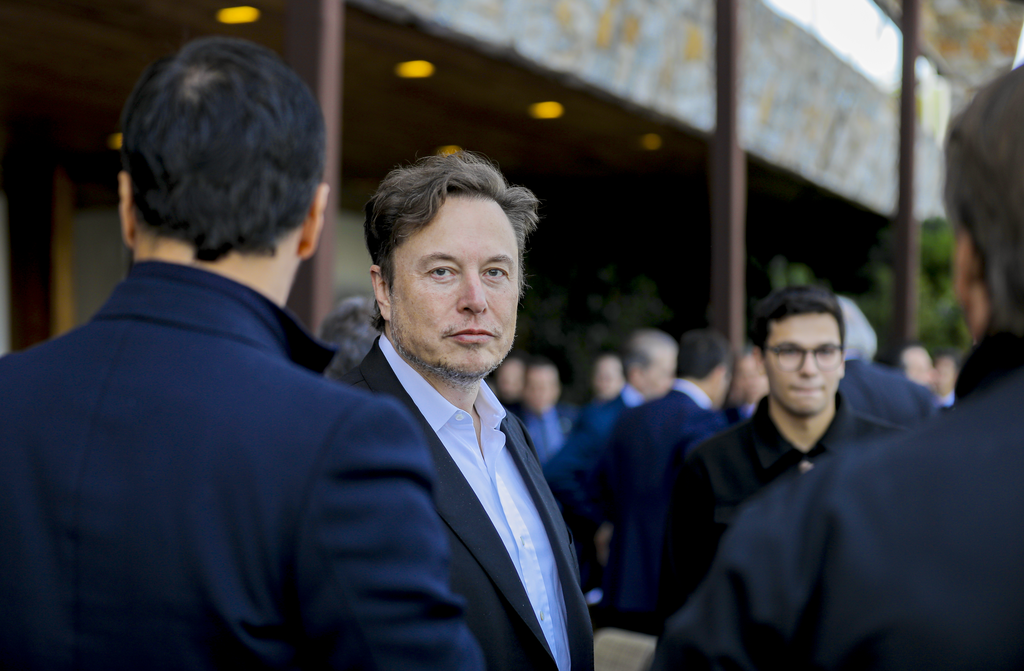Elon Musk has made a bold claim that Vice President Kamala Harris would “shut down” X (formerly Twitter) if she wins the election, sparking widespread debate and backlash on social media. Musk’s assertion, made in a recent interview, quickly captured attention and raised questions about the future of free speech on social media platforms under a potential Harris administration.
“If Kamala Harris wins, she will shut down X,” Musk declared, emphasizing his concerns that her administration might implement policies that restrict open discourse online. Musk argued that Harris’s approach to digital platforms could threaten free speech by enforcing stringent regulations he believes could lead to platform censorship or even the shutdown of X. The claim has intensified discussions on social media, where Musk’s defenders view his comments as a rallying call for free speech protections, while critics accuse him of fearmongering and fueling baseless conspiracy theories.
Musk’s concerns are rooted in his perception that the current administration has shown a willingness to regulate online content more aggressively. He referenced past statements and policy positions from Harris, particularly regarding misinformation, which he claims indicate a disposition toward limiting speech. “It’s not just about misinformation,” Musk added. “This is about who gets to decide what’s true and what’s allowed. A platform like X should be a place for open discourse, not government oversight.”
Harris’s campaign, however, has dismissed Musk’s comments, calling them “irresponsible and unfounded.” A spokesperson for the vice president said, “Kamala Harris has always supported the First Amendment and the importance of open dialogue. Any suggestion that she would ‘shut down’ a social media platform is absurd.” The spokesperson added that Harris’s focus is on addressing harmful content and protecting users from misinformation, not stifling free expression.
The assertion has intensified the ongoing debate about the role of social media in politics and the extent to which platforms should regulate content. Musk, who acquired X in a move framed as a defense of free speech, has been vocal about his “free speech absolutist” stance, resisting calls to more tightly moderate content on the platform. However, his approach has attracted criticism, with some accusing him of enabling harmful or misleading information by adopting a hands-off approach.
Analysts suggest Musk’s comments are also likely motivated by concerns over potential government intervention in tech companies, which could affect his control over X and his other ventures. “Musk is trying to set the narrative around free speech and position himself as a protector of it,” said Dr. Laura Brown, a media and political expert. “But his claim that Harris would outright shut down X is highly speculative.”
Supporters of Harris argue that Musk’s statements are a fear tactic aimed at galvanizing users against regulatory oversight. They contend that his hands-off approach to moderation poses risks, particularly as misinformation on social media grows. “Elon’s message here is about defending his business interests,” said Mark Gibson, a political analyst. “Harris has shown no indication of wanting to ‘shut down’ platforms, but Musk is framing it this way to stir up opposition.”
As the election approaches, Musk’s remarks underscore the heightened tension surrounding social media regulation and its impact on political discourse. Whether his comments influence voters or spark more concern about tech oversight remains to be seen.



 U.S. Announces Additional $6 Million in Humanitarian Aid to Cuba Amid Oil Sanctions and Fuel Shortages
U.S. Announces Additional $6 Million in Humanitarian Aid to Cuba Amid Oil Sanctions and Fuel Shortages  TrumpRx.gov Highlights GLP-1 Drug Discounts but Offers Limited Savings for Most Americans
TrumpRx.gov Highlights GLP-1 Drug Discounts but Offers Limited Savings for Most Americans  U.S.-India Trade Framework Signals Major Shift in Tariffs, Energy, and Supply Chains
U.S.-India Trade Framework Signals Major Shift in Tariffs, Energy, and Supply Chains  Japan Election 2026: Sanae Takaichi Poised for Landslide Win Despite Record Snowfall
Japan Election 2026: Sanae Takaichi Poised for Landslide Win Despite Record Snowfall  Trump Signs “America First Arms Transfer Strategy” to Prioritize U.S. Weapons Sales
Trump Signs “America First Arms Transfer Strategy” to Prioritize U.S. Weapons Sales  U.S. to Begin Paying UN Dues as Financial Crisis Spurs Push for Reforms
U.S. to Begin Paying UN Dues as Financial Crisis Spurs Push for Reforms  Ohio Man Indicted for Alleged Threat Against Vice President JD Vance, Faces Additional Federal Charges
Ohio Man Indicted for Alleged Threat Against Vice President JD Vance, Faces Additional Federal Charges  Trump Backs Nexstar–Tegna Merger Amid Shifting U.S. Media Landscape
Trump Backs Nexstar–Tegna Merger Amid Shifting U.S. Media Landscape  Netanyahu to Meet Trump in Washington as Iran Nuclear Talks Intensify
Netanyahu to Meet Trump in Washington as Iran Nuclear Talks Intensify  Missouri Judge Dismisses Lawsuit Challenging Starbucks’ Diversity and Inclusion Policies
Missouri Judge Dismisses Lawsuit Challenging Starbucks’ Diversity and Inclusion Policies  Trump Endorses Japan’s Sanae Takaichi Ahead of Crucial Election Amid Market and China Tensions
Trump Endorses Japan’s Sanae Takaichi Ahead of Crucial Election Amid Market and China Tensions  Nighttime Shelling Causes Serious Damage in Russia’s Belgorod Region Near Ukraine Border
Nighttime Shelling Causes Serious Damage in Russia’s Belgorod Region Near Ukraine Border  Federal Judge Restores Funding for Gateway Rail Tunnel Project
Federal Judge Restores Funding for Gateway Rail Tunnel Project  Jack Lang Resigns as Head of Arab World Institute Amid Epstein Controversy
Jack Lang Resigns as Head of Arab World Institute Amid Epstein Controversy  Pentagon Ends Military Education Programs With Harvard University
Pentagon Ends Military Education Programs With Harvard University  Trump’s Inflation Claims Clash With Voters’ Cost-of-Living Reality
Trump’s Inflation Claims Clash With Voters’ Cost-of-Living Reality  New York Legalizes Medical Aid in Dying for Terminally Ill Patients
New York Legalizes Medical Aid in Dying for Terminally Ill Patients 































